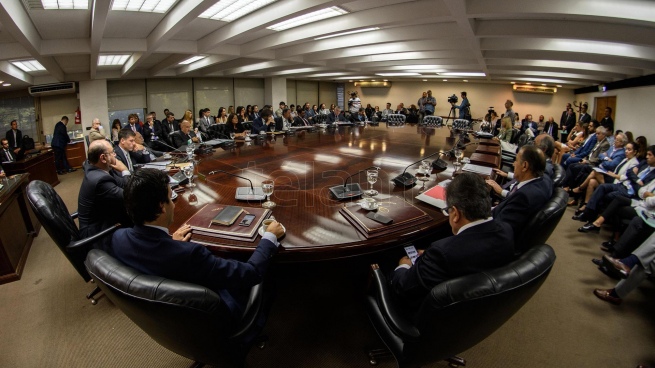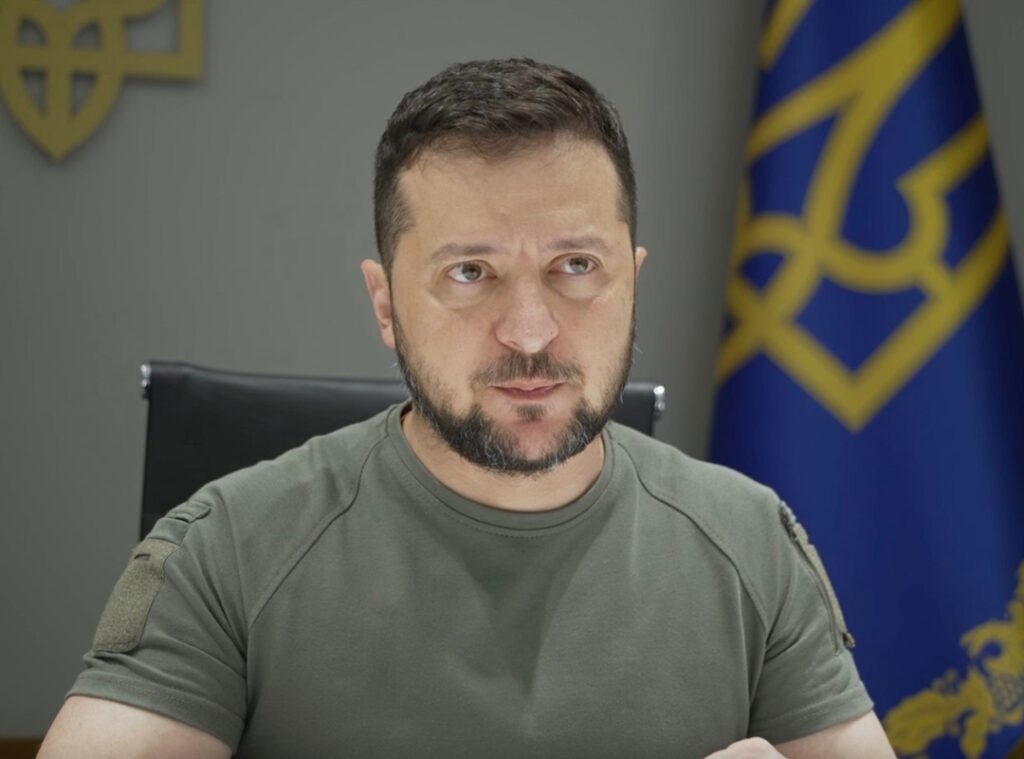Next Tuesday, judges and lawyers from all over the country will elect their representatives in the Council of the Judiciary, in the first renewal after the Supreme Court of Justice declared unconstitutional the law that regulates the organization’s integration and functioning last December.
Some 2,700 federal and national judges and some 160,000 lawyers from all over the country will be in a position to elect four representatives in a scenario highly permeated by national politics.
In fact, both in the ranks of judges and lawyers, there are three defined lists because of its distance or closeness to the ruling party and the opposition.
Among the judges, the Celeste list that brings together the magistrates closest to the Government once again chose as the head of the list the prison chamberlain Alberto Lugones, last president of the Council before the current composition chaired by the head of the Court, Horacio Rosatti.
Lugones’ candidacy was opposed by his opponent on the “Judicial Commitment” list (independent), Mr. commercial chambermaid Eduardo Machínin the conviction that he could not stand for a new term because re-election is not contemplated for directors.

Lugones appealed his challenge before the electoral judge María Servini, who ended up agreeing with him by considering that, since it is a new Council after the change of composition ordered by the Court, it should be considered as a first term and not a re-election.
Machín appealed Servini’s decision before the National Electoral Chamber and appealed to the Court with a per saltum to prevent Lugones’s candidacy, but the second electoral instance said that the challenge had been filed after the deadline and the Supreme Court did not take the jump for instance and it does not look like it will do so between now and Tuesday.
As a third option, between the proposal of Lugones and Machín, the Bordo List -closer to the opposition-, leading the list to the judge of the powerful Federal Chamber of Criminal Cassation, Diego Barroetaveña.
Among the lawyers, the preparations for the elections were not simpler; On the contrary, they went through a zone of turbulence when Elisa Carrió, the leader of the Civic Coalition, part of Cambiemos, objected -although without naming him- to the current counselor, Charles Matterson.
“The appointment as a member of the Judicial Council of a person (Matterson) who represents the interests and businesses of (Daniel) Angelici and the game is a violation of the Republic and the model of justice that is intended to be carried as a flag. It is essential reconsider,” he said. Carrió on his Twitter account.
Recalde obtained the endorsement of the Peronist governors of the Norte Grande to run for the Council
The labor lawyer and former national deputy, Héctor Recalde, received the support of the Peronist governors of the Norte Grande for his candidacy to represent the lawyers in the Judicial Council, for list 2 “Commitment to the Constitution”, in the elections that will take place next Tuesday.
In the frame of the 14rat. assembly of the Norte Grande Regional Council, which was held this Friday in Santiago del Estero, the Peronist leaders Jorge Capitanich (Chaco), Gildo Insfrán (Formosa), Ricardo Quintela (La Rioja) and Raúl Jalil (Catamarca), among others, They met with Recalde and gave him their support.
Gerardo Zamora, from Santiago, also joined, along with the Chief of Staff, Juan Manzur, and the Deputy Chief of Staff, Juan Manuel Olmos.
Last night, meanwhile, the Chamber of Deputies awarded the “Juan Bautista Alberdi” honorable mention to Recalde, who received the award from the president of the Chamber, Cecilia Moreau.
“Héctor is one of those deputies that you know because you read it, you listen to it. A man with a lot of warmth, with the characteristic and virtue of teaching”, said Moreau.
Judges and lawyers from all over the country will elect their representatives to the Council of the Judiciary next Tuesday, in the first renewal after the Supreme Court of Justice declared unconstitutional the law that regulates the integration and operation of the body last December.
Some 2,700 federal and national judges and some 160,000 lawyers from all over the country will be in a position to elect four representatives in a scenario highly permeated by national politics.
In fact, both in the ranks of judges and lawyers, there are three lists defined by their distance or closeness to the ruling party and the opposition.
In the pro-government proposal, “Commitment to the Constitution,” there was consensus that it be headed by the labor lawyer and former deputy, Héctor Recalde, seconded by Adriana Coliqueo.
The list headed by the former legislator “calls to transform the Judiciary with a vision of gender, federalism, transparency and technological advances,” among other proposals.
From the “Commitment to the Constitution” space, it is also proposed to “implement measures of a technological nature with the aim of contributing to modernization and reducing the time of judicial processes, perhaps one of the historical claims of citizens regarding this area” .
“The battery of actions includes the plan to put into operation an audiovisual signal that allows the agency’s activity to be broadcast live, providing transparency and thus democratizing access to information with a firm federalist gaze,” they specified from that list.
Due to Carrió’s questioning, the opposition coalition decided lower Matterson and appoint Alberto Maques in his placecurrent president of the Council of the City Magistracy.
Maques will be the substitute for Miguel Piedecasas, a former councilor who seeks to return with the support of the UCR, on the list “Advocacy for an independent justice” that leads as the second candidate to the current councilor and former AFIP official during the macrismo, Jimena de la Tower.
In the official proposal, “Commitment to the Constitution”, there was consensus for it to be headed by the labor lawyer and former deputy, Hector Recaldeseconded by Adriana Coliqueo.
As a third option, the current Counselor and Dean of Law at the University of Lomas de Zamora, María Fernanda Vázquez, presented the “New Federal Lawyers” list.
Weeks ago, the National Interuniversity Council (CIN) unanimously consecrated Guillermo Tamarit as its representative before the Judicial Council.

Tamarit, lawyer and doctor of the Faculty of Legal and Social Sciences of the National University of La Plata, was elected by the twenty members of the Interuniversity Council and as of November he will assume one of the twenty places of the Judicial Council.
The lawyer from La Plata will join the technical staff of the Academy together with Hugo Galderisi, academic secretary of the National University of Lomas de Zamora (UNLZ), to replace Diego Molea, rector of that same university.
Both will take office on November 20 together with the representatives of the lawyers, judges and legislators, in the first renewal of the Council of the Judiciary with its composition of twenty members.
The Council closes with this election another hectic year, in which the Court declared unconstitutional the balance between “technical” advisers (lawyers, judges and academics) and “political” (legislators and the representative of the Executive Branch) and convened, with Tuesday’s, to two elections in less than six months.
















